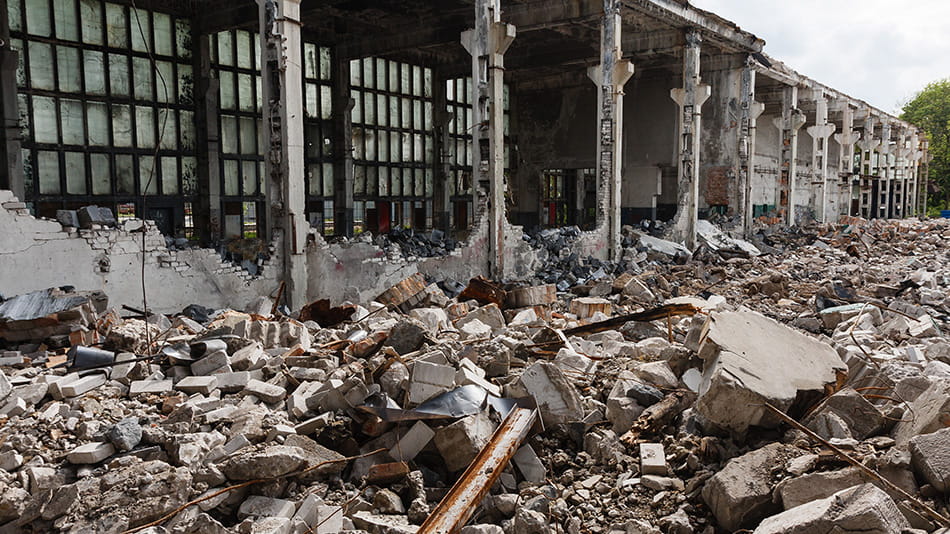Global instability, including the war in Ukraine, threats of international cyberattacks and tensions between China and Taiwan, should prompt business owners to consider what would be covered by insurance if war-related disruption affected their operations, experts say.
"The unfortunate news is that typically not much is covered in these situations," said Kathy DeGrandchamp, risk management consultant with BOK Financial Insurance, Inc.
Virtually all insurance policies have language that specifically excludes war and acts of terrorism, she said, but the degree to which coverage is restricted varies widely between insurance companies and policy type.
"Insurance companies exclude war because they have no way to accurately predict the likelihood or severity of damage, and therefore, the inability to adequately collect premiums to cover war-related losses," she said.
This is common across the spectrum of insurance types—property and casualty, life and health insurance policies, DeGrandchamp said. What that means, she added, is that some financial losses can't be recovered through traditional insurance."
But what kind of war—and what kind of disruption—can affect your coverage?
"These subtle differences in language can make a substantial difference at the time of a loss," she said.
What counts as "war?"
When it comes to war, most of us think of "kinetic war," which includes physical damage caused by fire, explosions, building collapse and other physical damage brought on by conflict.
But there is also "non-kinetic" war, such as cyberattacks, diplomatic actions and sanctions, among others.
"You may be wondering if this is something you even need to be thinking about while you do business in the U.S.," DeGrandchamp said. "However, so much of our product sourcing and supply chain is international. Something happening on the other side of the world could easily affect your business operations."
Businesses that source products from areas in conflict may suffer both direct and indirect damage due to supply chain disruption. During times of war, government seizure of ships, aircraft, trains or other cargo transport may result in delay or destruction of goods in transit.
Will your business interruption policy cover the fact that your inventory never arrived? "It's not likely," DeGrandchamp said, "But, it's important that you know what your policy language includes. It's hard to generalize, but most policies will not cover loss related to products being lost due to damage related to war or an act of foreign governments."
But what about war in the 21st century? The Department of Homeland Security has warned that U.S. organizations could face cyber threats stemming from the conflict between Russia and the Ukraine and state-sponsored cyberattacks.
These acts of non-kinetic warfare may cause business losses as a result of viruses, phishing, malware or denial of service attacks that take down critical infrastructure or prevent legitimate users from accessing key systems.
If you suffer any kind of financial loss as a result of war-related activity, the insurance company is going to refer to the specific terms in your policy to determine what coverage is available. DeGrandchamp explained that it's important for policyholders to know what the limitations are before submitting a claim, so that you're not surprised if the outcome isn't what you were hoping for.
"I cannot stress enough that now is the time for business owners to review their policies—all of your policies—because the language is different for each one," DeGrandchamp said. "Within one company, you may have five different insurance policies and five different definitions of war. For example, your property and general liability policies may have very different exclusionary language from your cyber liability policy."
So what can you do?
Business owners need to stay informed and prepared, she said.
"If you're not working with a broker and placing your own business insurance, now might be the time to consider engaging a broker, simply to have another set of eyes on your insurance program," she said. "It helps you understand what you do and don't have to ensure your policies adequately meet the needs of your business."
Tip 1: Know what each of your insurance policies excludes. Because the language is different from policy to policy, it's important to know how each will respond. Some insurance policies have more favorable language than others. For example, one may exclude only "kinetic war" or "acts by foreign governments" while other policies may altogether exclude "losses caused by war-related events" or "foreign hostilities."
"If you're uncertain about the language in your policy, reach out to your agent or broker to get clarification," DeGrandchamp said.
Tip 2: Review your contingency plans. Are you prepared for global or even regional conflict? When was the last time you put your business through a stress test? "What-if" scenarios help businesses assess their resilience to all kinds of threats—be sure that you're looking for vulnerabilities that might arise out of conflict.
"Don't wait until it's time to renew your policy," she recommends. "Understanding what you'll be able to do in case of an exposure—if anything—is imperative now. If it's nothing, that means it may be time to make a pivot or focus on getting your contingencies in place in case something were to happen."




